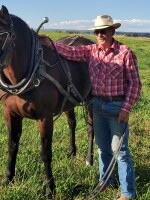Farmland sales prices are often viewed as an indicator of whether the farm economy is robust or is in recession. If we go by the record high Midwest land sale prices in 2022 that the U.S. Department of Agriculture recently reported, the farm economy would seem to be in good shape. While it’s commonly assumed that investors have been behind the high prices, that may not be true. According to Paul Schadegg, senior vice president of real estate operations for Farmers National Company, a nationwide agricultural services provider that handled $766 million in land sales in 2022. He pointed out that farmer-operators were the successful buyers of farmland 75% of the time in private treaty land sales and land auctions that the company conducted last year. Those sales, he believes, indicate a willingness of buyers to bid on the limited amount of agricultural land coming to the market, which was probably driven by strong commodity prices. Schadegg expects that those strong land values will continue into 2023.
At gatherings of farmers and ranchers, they often talk about a perceived disconnect between the general public and what the agricultural community provides to the well being of our society. An example of this may have been playing out last week in Iowa, the state with the second largest agricultural economy. Legislation was introduced in the Iowa House of Representatives to stop Iowans from using SNAP, also known as food stamps, from purchasing candy and soda, but was expanded to also restrict the purchase of fresh meat, butter, sliced cheese and bagged salads. While Iowa legislators debated restrictions on what folks can buy with food stamps, the USDA recognized Iowa as the number one state for commercial red-meat production for December, mostly because of its dominant position in pork processing. If approved, the Iowa legislation would basically prohibit food stamp benefits from being used in the state to buy any pork products. I’m curious whether livestock producing constituents of these legislators are happy about their stance on this legislation.
On the flip side, according to a public opinion survey conducted by the Colorado Department of Agriculture and Colorado State University last fall, Coloradans want to support the state’s agricultural industry. The survey indicates that 98 percent of respondents agreed that Colorado's food and agricultural industry is important to the state's future economic development; that the presence of ranches, farms, and agriculture is important to the quality of life in Colorado; and that it’s important to maintain land and water in the state for agricultural purposes. More than 90 percent of the respondents believed that agriculture was among their top three most important ways Colorado can use its water, and 98 percent believe that Colorado’s land and water resources should be used to support efforts to increase food security. The survey also found that there is strong support for developing a robust local food system, and that are likely to choose Colorado grown if they have a choice when shopping for food or dining out.
Francis Bacon wrote: “Great hypocrites are the real atheists.”



